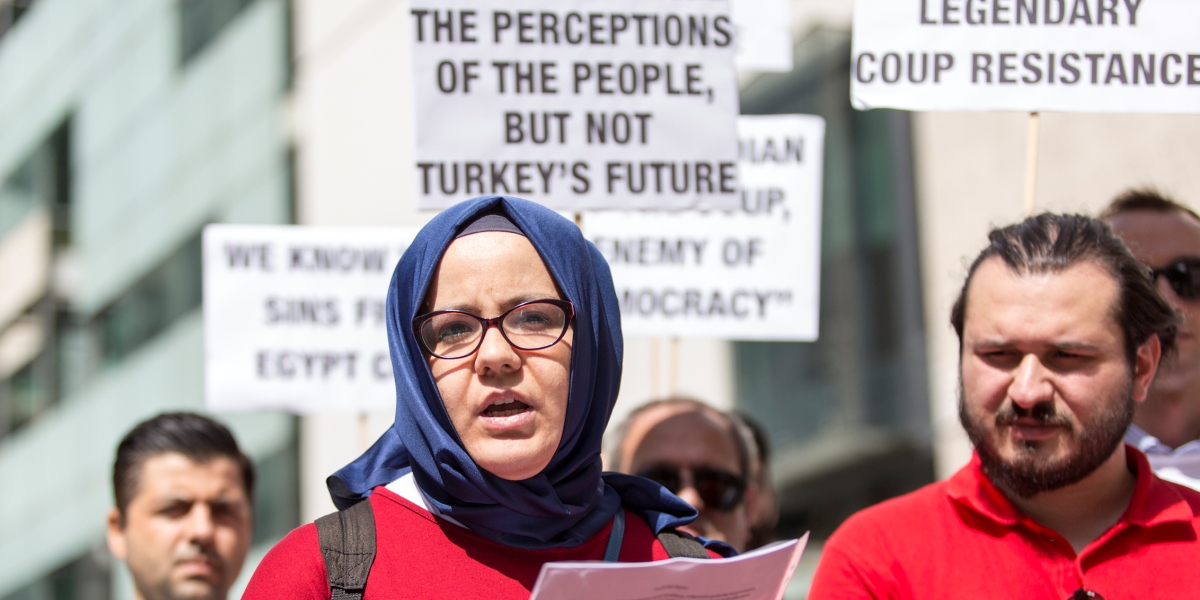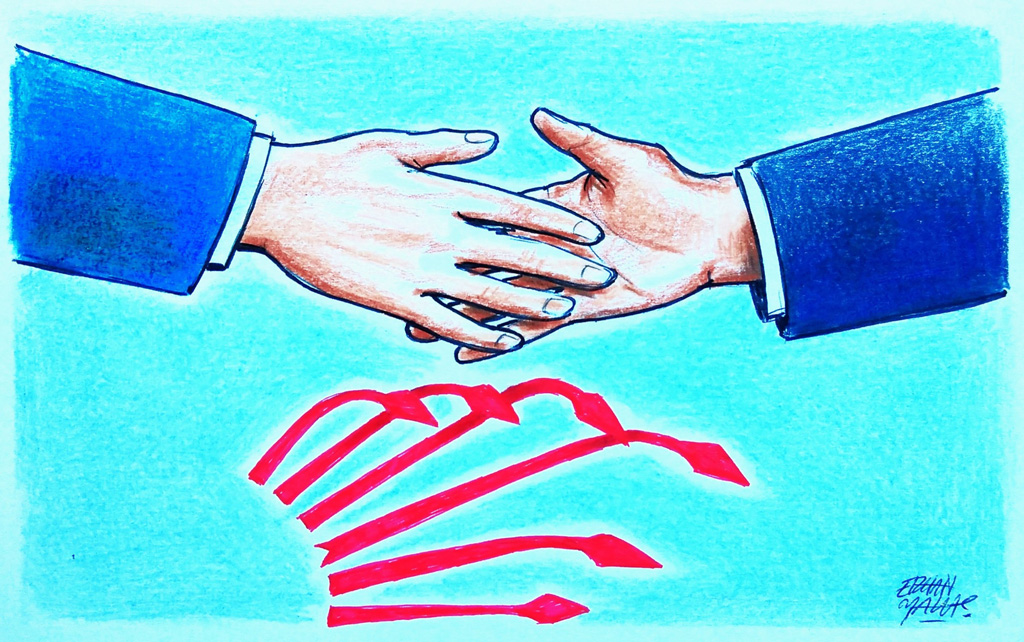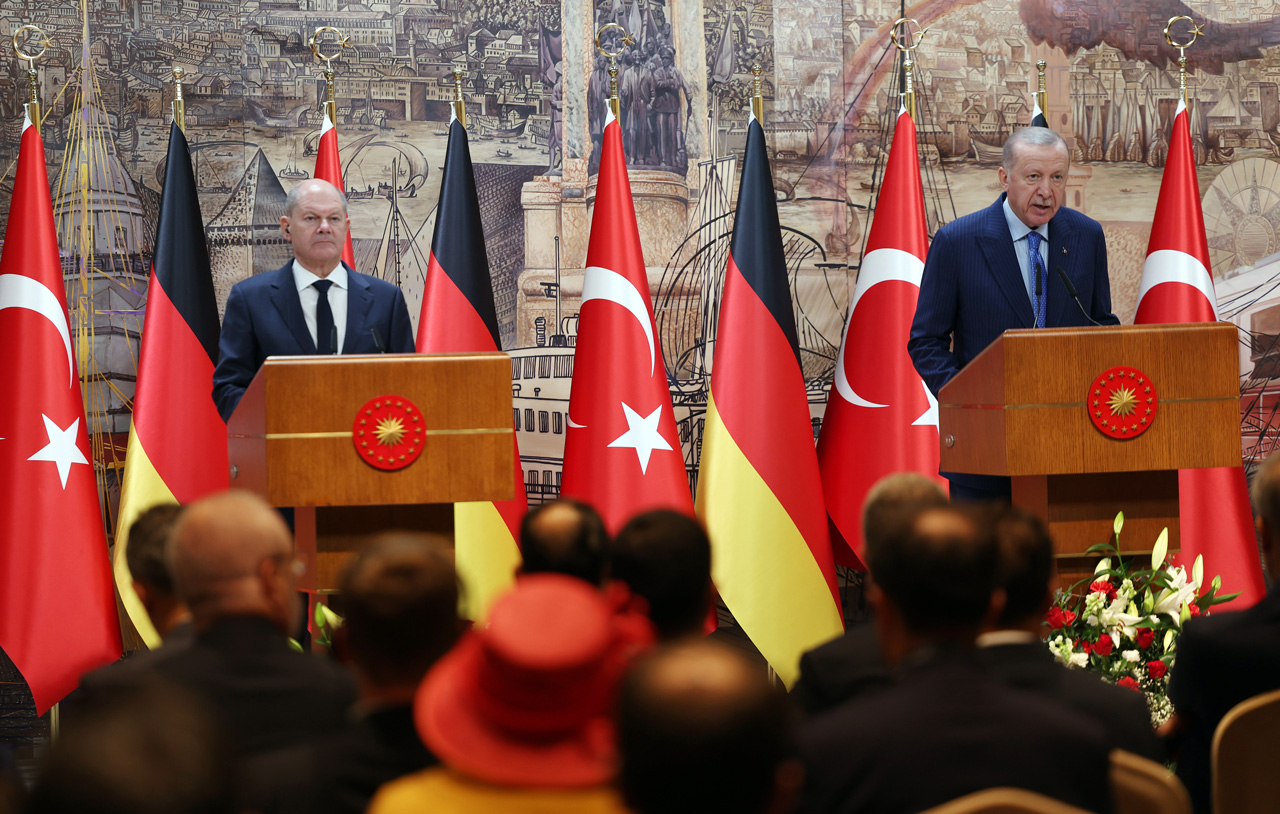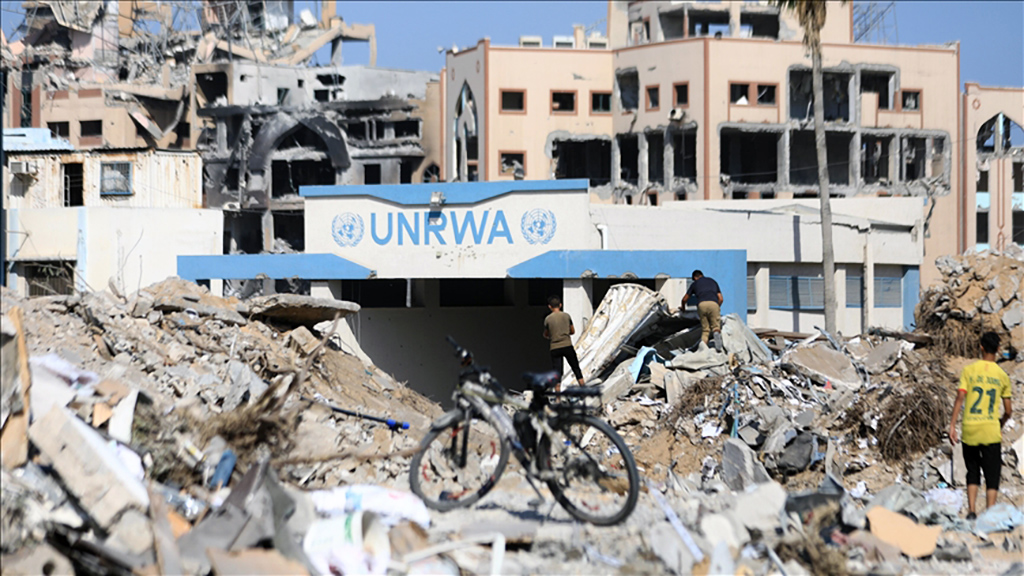Today, Turkey is grappling with the inner and outer networks of three terrorist groups. This is a critical challenge no democracy has yet confronted.
DAESH, which has some religious claims, the Gülenist Terror Group (FETÖ), which seems pro-dialogue and moderate, and the outlawed PKK, which has secular and ethnic humanist discourse, are simultaneously targeting Turkey. A comprehensive fight is being maintained inside the country to guarantee the functioning of state institutions. The institutions are being purged of not only around 90,000 FETÖ members, but also PKK members. This implementation is not likely to end with the laying off of 11,500 teachers from their jobs. The purge of PKK members is practiced in many institutions including municipalities and the Presidency of Religious Affairs (DİB).
Thanks to the strong feelings of unity introduced by the July 15 democracy epic, the fight against terror has progressed a great deal in the country.
As can be inferred from the latest warnings from President Recep Tayyip Erdoğan and Prime Minister Binali Yıldırım, the fight has to be maintained in the framework of a state of law and equity. It must be kept from hurting society's sense of justice, and maximum efforts must be exerted to prevent individuals from being downtrodden.
The main difficulty we have in the counter-terror fight does actually lie in another place. DAESH, FETÖ and the PKK have networks of international support. The networks belonging to DAESH, which is recognized as a dangerous terrorist group all over the world, are problematic due to their potential to create lone wolfs out of alienated individuals. However, unlike DAESH, which does not have any public legitimacy, FETÖ and the PKK enjoy one additional advantage: a broad field of activity enabled by representing themselves to the international community as legitimate.
They disguise their true motivations under the notions of democracy, freedom and human rights. For this, they try to represent their fight as mere dissidence to the "Erdoğan regime" by manipulating the anti-Turkey feelings in the West.
Their instruments in doing this are their diasporas and parallel structures in the U.S. and Europe's civil societies. These structures also live in Turkey in indirect ways.
Undoubtedly, FETÖ leader Fetullah Gülen is the most adept one at creating the impression of being righteous and legitimate. In the answers he gave to Politico, he said he did not have any regrets and the heavy price the organization paid is the price of being independent.
The argument he chose also has a formulation that could provoke the main opposition Republican People's Party (CHP) proponents: "Loyalty to Erdoğan is replacing loyalty to Atatürk as the criteria for an acceptable identity." He completed the picture by asserting that he was "wiped off" because he objected to Erdoğan's plans to introduce a presidential system.
Gülen suggests that international pressure must be put on the government to "prevent Turkey from turning into another Middle Eastern authoritarian regime." It is impossible for such arguments to address Turkish society.
. More importantly, he tries to protect his structures and activities in the West. To succeed in the fight against FETÖ and the PKK, purges in the country are not sufficient. It is also required to fight against the networks and structures outside of the country.
Three dimensions of this can be determined: First of all, coordinated public diplomacy must be run to deactivate the discourses of both organizations' diasporas. This will decrease their chances of being seen as legitimate and righteous. Secondly, foreign affairs diplomacy and security units must engage in joint action with the relevant countries in following the Europe-based associations and monetary sources of these organizations. This is another crucial point to prevent their activities to raise new militants and restrict their financial sources. And thirdly, the PKK and FETÖ's diasporas must be obstructed from benefiting institutions within Turkey and opportunities in the business world. The most critical aspect is disrupting their resource cycles both inside and outside of Turkey.
For Turkey, the fight against terror is a long path that must be covered with meticulous planning.
[Daily Sabah, September 16, 2016]








